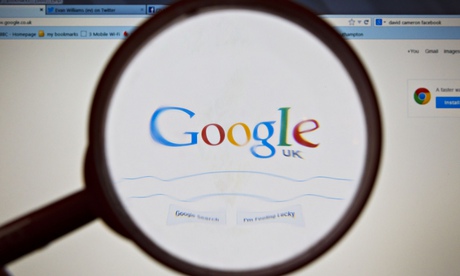
The chief executive of Rupert Murdoch's News Corp has written to the European commission calling Google a "platform for piracy" and demanding action.
In the strongly worded letter to competition commissioner Joaquín Almunia, News Corp's Robert Thomson calls Google a "platform for piracy and the spread of malicious networks" whose power "increases with each passing day".
"The shining vision of Google's founders has been replaced by a cynical management," Thomson writes.
Earlier this month the European commission reopened its four-year antitrust investigation into Google's search and advertising business after Almunia said the commission was not close to a settlement. In an interview with Bloomberg TV Almunia said he had received "very, very negative" responses from complainants to a proposed settlement unveiled in spring. Ministers from Germany and France, as well as other commissioners in the EC, had also criticised the proposed settlement.
News Corp, publisher of The Sun, the Times newspapers and the Wall Street Journal, joins Microsoft, German publisher Axel Springer and others in a chorus of critics challenging Google's European dominance. The search firm is even more powerful in Europe, where it accounts for around 90% of the search market, than it is in the US, where its share is closer to 70%.
Citing Google's "egregious aggregation" of content, Thomson said that, along with serious commercial damage, there is a "profound social cost" to Google's actions. "The internet should be a canvas for freedom of expression and for high-quality content of enduring value. Undermining the basic business model of professional content creators will lead to a less informed, more vexatious level of dialogue in our society," he wrote.
"Your decision to reconsider Google's settlement offer comes at a crucial moment in the history of the free flow of information and of a healthy media in Europe and beyond," Thomson wrote.
Google's proposed settlement would have allowed rival services to buy spaces at the top of search-results pages. But critics charged the agreement would not prevent Google from favouring its own services, and would divert money from the rivals to Google.
Google said Thomson's comments were "absolutely wrong". After Thomson's letter was published the company issued a short statement: "Phew what a scorcher! Murdoch accuses Google of eating his hamster." The comment was in reference to an infamous story run by The Sun in 1986. The paper claimed the British comedian had eaten his girlfriend's pet hamster, Supersonic, after returning to her home following a performance at a Manchester nightclub.
In his 2001 autobiography Unwrapped Starr said that the incident was a complete fabrication. "I have never eaten or even nibbled a live hamster, gerbil, guinea pig, mouse, shrew, vole or any other small mammal," he wrote. The man behind the hamster story was the British publicist Max Clifford, the disgraced PR guru who was convicted in May of eight counts of indecent assaults on four women.
Google said: "We run a huge range of tests to make sure that any change to our algorithm improves the quality of the search results for our users, regardless of what that means for our income. In fact, it's well documented that the highest-profile change to our search ranking (called the 'Panda' update) reduced our advertising revenue — but we made the change regardless, because it improved search results for users."
• This article was amended on 19 September 2014 to correct the spelling of Joaquín Almunia's name, from Alumnia as an earlier version said.

